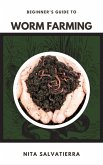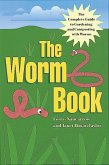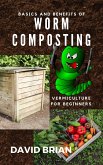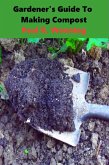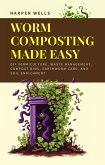Just like the proverbial virgin came to her child, I came to the topic worm farm and the associated vermicompost. It started harmlessly. We moved into a tenement house in the countryside, where the previous tenant had no bio bin, too. Instead of this there was a quick composter in the far corner in the garden. "Great, we can save money!" That was my first thought. And so we used the compost and happily threw in everything that belongs there. Organic waste from the kitchen, grass clippings, leaves and tree trash. So far, so unspectacular. After two years I restacked the compost for the first time. I believed after all the stuff we had put in during that time to find the black gold at the bottom of the fast composter. Valuable soil and fertilizer. However here came the first disillusionment. There was nothing that looks like a valuable compost. Nothing but incompletely rotted organic waste. And so I duged it all over and filled it back into the composter frustrated. What kind of work and what an effort! And nothing came out with whom I could do something. When it was winter again and it did not stop snowing, another problem became evident: I could not reach the quick composter through the waist-deep snow anymore. What should I do with the garbage now? I could buy me a snow pants. Or hoping for a quick and strong global warming. It would also be possible to throw everything in the normal trash can. But I wanted to find a solution that neither costs us money nor goes against my ecological principles. And as it is in these days, I get my inspiration from the Internet and read myself smart. And I did that for weeks and months. And now I will share my experience with you to show you how you can quickly produce your own soil and fertilizer for free!
Dieser Download kann aus rechtlichen Gründen nur mit Rechnungsadresse in A, B, BG, CY, CZ, D, DK, EW, E, FIN, F, GR, H, IRL, I, LT, L, LR, M, NL, PL, P, R, S, SLO, SK ausgeliefert werden.



